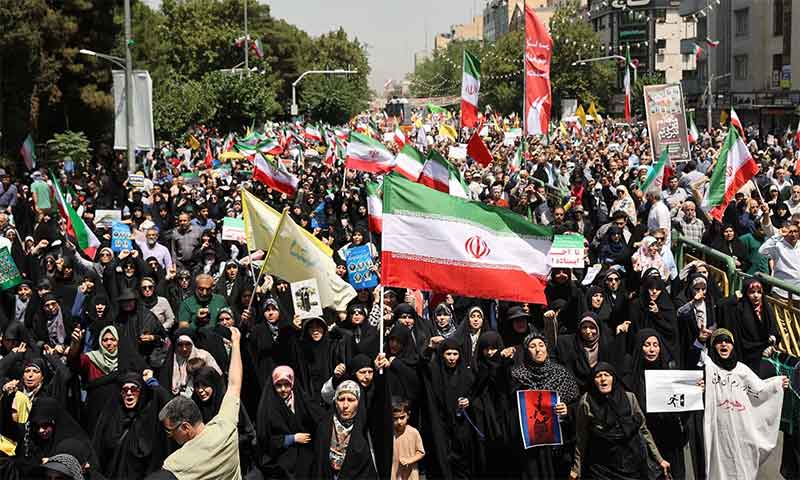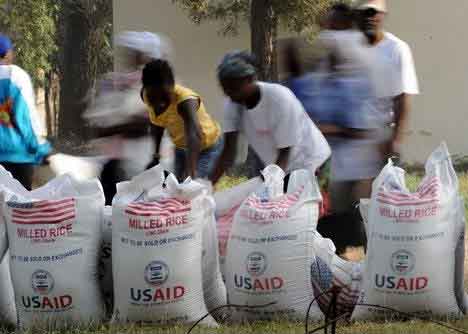
19 June marked the seventh day of Israeli strikes against Iran, with developments appearing to diverge from White House expectations.
Following targeted attacks on senior military commanders and nuclear scientists, along with strikes on nuclear and military facilities, Iran has regained operational control. The country launched its ‘True Promise 3’ operation without delay.
After initial disruption in the opening hours, Iran appointed replacement commanders and enhanced the effectiveness of its air defence systems. Iranian authorities also implemented security measures to identify suspected infiltrators who had allegedly used drones and other small aircraft to conduct covert operations within the country.
US and Israeli authorities likely did not anticipate an immediate collapse of the Iranian government through airstrikes alone. While both governments have made strategic miscalculations, it would be surprising if they genuinely believed a state could be toppled solely through aerial bombardment.
The apparent strategy seemed to rely on triggering civil unrest among opposition groups following the initial government disruption. This would have potentially created openings for trained mercenaries to initiate a secondary phase of operations. However, this scenario failed to materialise.
Instead, the majority of Iranians, particularly after reports emerged of civilian casualties from the attacks, responded with anger and solidarity. The civilian losses appear to have awakened a sense of national unity and patriotism among the population.
Trump’s contradictory statements can be understood within this context of strategic miscalculation, alongside pressure from the Zionist authorities, as evidenced in social media posts and public commentary.
Trump’s messaging has been inconsistent: one day stating he has no plans for US involvement in the conflict, the next threatening to consider declaring war against Iran unless it accepts ‘unconditional surrender’.
On the other side, the televised message from Iran’s Supreme Leader was clear and definitive: ‘We do not accept imposed “peace”, just as we did not accept imposed war, as we demonstrated during the Iraqi Ba’ath regime’s invasion of Iran’.
This stance is reflected in the Iranian armed forces’ retaliation and the positions taken by senior political officials.
Perhaps this explains why International Atomic Energy Agency Director General Rafael Grossi acknowledged that they have ‘no proof of Iran’s active plan to build nuclear weapons’.
Notably, Tulsi Gabbard, Director of National Intelligence, had previously made similar statements, though Trump recently indicated he dismisses them, saying he doesn’t care about ‘what she said’. This echoes the pretext used to invade Iraq: claims of ‘weapons of mass destruction’ that proved to be unfounded, similar to the discredited Nayirah testimony that became a scandal for the George W. Bush administration.
We could debate for hours about the reasons behind the current situation and the timing of direct attacks on Iran: external factors, internal catalysts, international dynamics, and more.
However, three points are clear:
First, Israel is not operating independently. The Israeli state functions as a settler colonial entity representing Western imperial interests in West Asia.
Second, the United States disregards international law, evidence, and public opinion when it calculates that the benefits of military action outweigh the costs.
Third, and most importantly in my view, this is not a religious or regional conflict between two competing powers. This represents a new phase of the ‘New Middle East’ plan, as reflected in the cover of a recent Time magazine issue. And the fragmentation of Iran is a main part of this plan. It builds upon earlier strategic frameworks, including the Yinon Plan (1980s) and ‘A Clean Break: A New Strategy for Securing the Realm’ (1990s), with backing from the Western bloc.
From this perspective, this constitutes a full-scale confrontation between the Global North and Global South, with Iran positioned on the front lines of Western imperialist aggression against national liberation movements throughout the Global South.
Based on this analysis, all revolutionary forces must unite behind this slogan: ‘Hands Off Iran!’
And a message to our friends around the world: Iran resists, to the last person, the last bullet, the last breath.
Subscribe to Our Newsletter
Get the latest CounterCurrents updates delivered straight to your inbox.
Ali Abutalebi has been the executive director of Mazmoon Books since 2005. He founded the Iranian Campaign for Solidarity with Cuba, has worked as publication director at House of Latin America (HOLA), and authored several articles for the Iranian press and political websites, mostly focused on Latin American progressive movements. Ali published a book on Cuba titled Rest in Peace Ernesto.
This article was produced by Globetrotter.










































